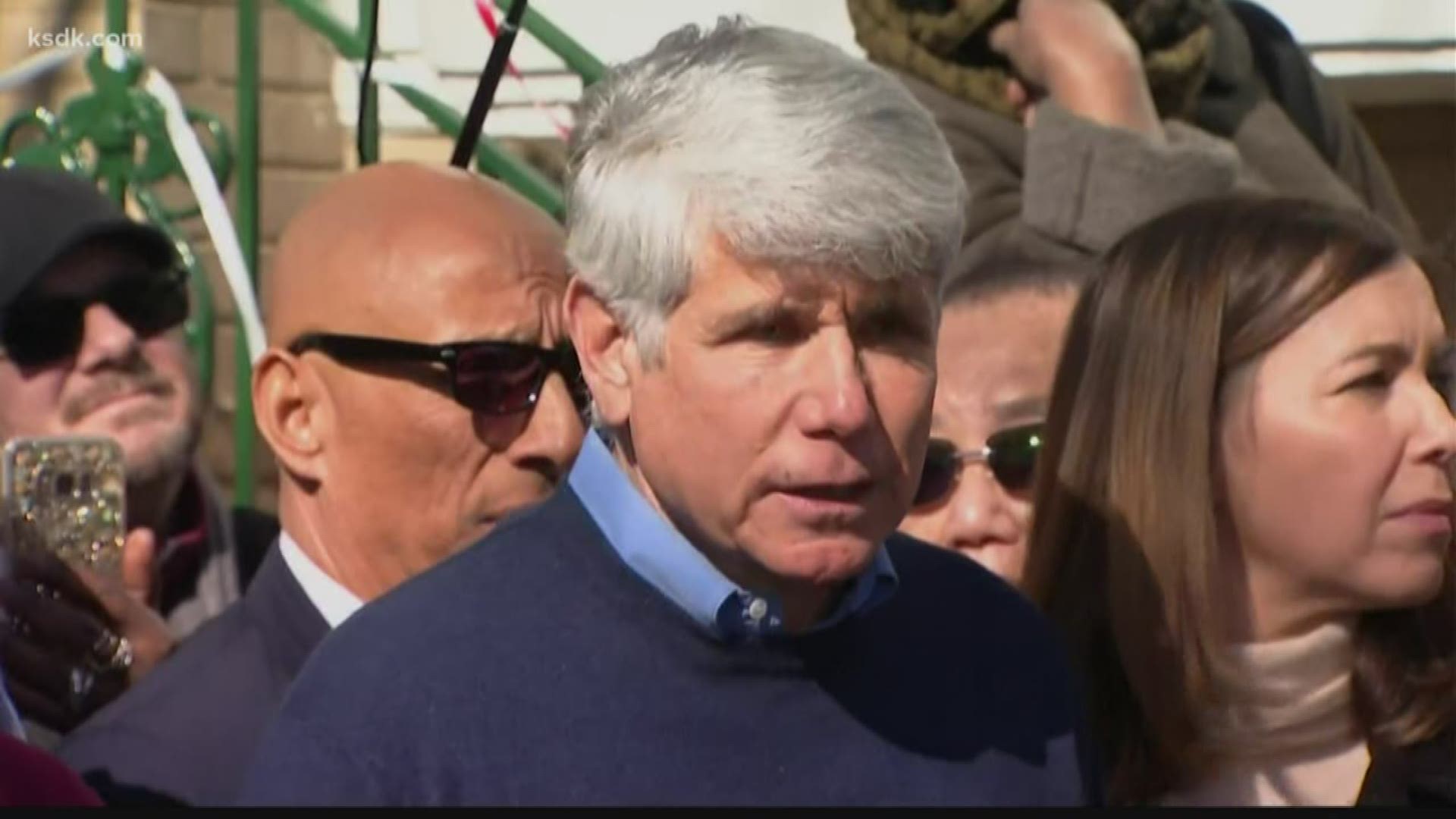CHICAGO — Ex-con and former Gov. Rod Blagojevich sued his home state Monday for booting him from the governor’s seat after his 2008 arrest for corruption and stripping him of his right to run for elective office in Illinois.
Before filing the lawsuit, an unapologetic Blagojevich addressed reporters outside the same federal courthouse in Chicago where he was convicted, declaring: “I’m back.” He said he hasn’t decided, however, if he will seek to run for anything if he succeeds in eliminating the legal hurdles to doing so.
“I haven’t thought about running for office,” the 64-year-old Democrat said. “But I am not going to rule out any options either.”
Then-President Donald Trump freed Blagojevich in February 2020 after he had served eight years of a 14-year sentence, including for trying to sell an appointment to Barak Obama’s old U.S. Senate seat for campaign cash. Leaders of both parties in Illinois sharply criticized Trump's commutation.
Speaking outside the courthouse in a gray suit that matched his hair, which went gray behind bars because inmates are prohibited from using hair dyes, Blagojevich also declared his loyalty to the former Republican president.
“I’m a Trumpocrat,” said the one-time contestant on Trump’s reality TV show, “Celebrity Apprentice.” Because Trump spared him from several more years at his Colorado federal prison, Blagojevich added: “I am grateful to him forever.”
The Illinois House in January 2009 voted 114-1 to impeach Blagojevich, and the state Senate voted unanimously to remove him, making him the first Illinois governor in history to be removed by lawmakers.
Monday's lawsuit argues the way legislators went about impeaching and ousting him was unconstitutional, including because he wasn’t allowed to call and question witnesses. It seeks a permanent injection declaring the General Assembly’s actions unconstitutional.
Blagojevich didn't sound particularly confident about his chances of prevailing, noting for journalists how he had received a C in constitutional law at law school. Because of his felony conviction, he was also stripped of his law license. He is representing himself pro se as a non-lawyer in the suit — self-representation that is usually reserved for prisoners or the indigent.
Blagojevich said Monday he earns a living by consulting work, doing a podcast, giving paid speeches and featuring on a app through which celebrities are paid for giving personalized birthday and other greetings. He said he is also writing a book.
Blagojevich once was regarded as a rising political star for his Bill Clinton-like ability to connect with voters, but he has been radioactive in Illinois political circles for years. Details about his corruption as governor shocked even Illinoisans, who for decades have seen a procession of indicted elected officials heading in and out of the same courthouse.
Blagojevich's remarks Monday at times sounded like a campaign stump speech, highlighting what he characterized as major accomplishments as governor, including securing senior citizens free rides on mass transportation.
He did not display a hint of contrition Monday, saying the case against him was always “a travesty of justice.” He did say he knew his reputation is badly tarnished, describing how he saw a picture of himself in a prison-library almanac related to his convictions.
“I was in that almanac for this,” Blagojevich said, gesturing to the courthouse. “It sucks.”
Prosecutors and federal judges who have reviewed Blagojevich’s case have balked as his claims that he engaged in common political horse-trading and was a victim of an overzealous U.S. attorney. They say there was overwhelming evidence that Blagojevich broke the law, including trying to squeeze a children’s hospital for campaign donations.
___
Follow Michael Tarm on Twitter at https://twitter.com/mtarm.

